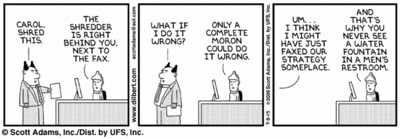Traditional Media vs New Media
Wiki editors and contributors have edited a Esquire article!! Which will then be printed in Esquire magazine....for more info go and have a look :)
Digital Communication & Partcipatory Culture
 Finished! (above)
Finished! (above)

iGeneration Critical Evaluation: The Daily Source Code – Adam Curry
Patterns of media consumption have been profoundly altered by a succession of new media technologies which enable average citizens to participate in the archiving, annotation, appropriation, transformation, and recirculation of media content. Participatory culture refers to the new style of consumerism that emerges in this environment. – Henry Jenkins[1]
Adam Curry hosts and produces The Daily Source Code (DSC) podcast, the first of its kind, which began in August 2004[2]. Podcasting is a new form of audio broadcasting[3] that was developed in 2003 by Adam Curry and Dave Winer[4]. Podcasts are syndicated digital audio shows similar in style to traditional radio broadcasts, but with a few notable exceptions: you can listen to them anywhere and anytime on your portable music device; they can be produced by anyone with access to a computer, microphone and internet access. The core technology behind podcasting is syndicated feeds built using RSS (Really Simple Syndication) and aggregators in the form of Curry’s original iPodder, and more recently Apple’s iTunes. In 2003, Curry was dissatisfied with audio streaming due to the high cost of bandwidth usage that it involved, it restricts you to sitting at the computer, and you can’t save streaming audio for when you want to listen to it[5]. Curry thought about the delivery of audio files and spoke to Dave Winer about RSS feeds, which led to Winer developing RSS Enclosures[6]. With the technology available to deliver subscription style mp3s, Curry went about trying to create an ‘aggregator’, (i.e. a “…standalone application that would download these mp3 files and automatically store them on my iPod”), and using the basic programming tool Applescript he developed the first podcast aggregator iPodder[7]. From this The Daily Source Code was born, initially as a “…proof of concept for iPodder”[8] but also as a way to attract developers and encourage them to make iPodder better[9]. Curry, once a famous MTV host and radio DJ, is still the most notable celebrity behind the podcasting ‘revolution’[10]. Although some have become bitter due to Curry’s enthusiasm for taking all the limelight and credit at times[11]. Nevertheless, his Daily Source Code explores issues relating to its development and future, promotes other podcasts, as well as functioning as a lifestyle show, even discussing his family’s hilarious forays in day to day life.
Curry’s DSC is one of the central forces behind podcasting. His show highlights what podcasting is all about, as well as debating some of the larger issues and new innovations required to take the podcasting medium further into the future. Curry makes it quite obvious in every show that the DSC is not produced from a studio, but simply through his laptop and portable workstation. As Annalee Newitz of Wired Magazine witnessed firsthand, podcasting can be done anywhere, even by Curry in his car[12].
One of the major potentials of podcasting as a medium is its development as a ‘grassroots’ media phenomenon. Prior to podcasting, blogs took advantage of syndication and everyday citizens with access to computers began to take on the role of ‘grassroots journalism’ or reporting. Now, podcasting is the next logical step, focusing not on text but audio[13]. As Tod Maffin, a producer of CBC radio states on his blog,
They are podcasters: citizen broadcasters who arm themselves with rudimentary recording tools, free software, and a speedy internet connection. And like the bloggers before them, they are changing the nature of the medium. Podcasters may indeed revitalize the art of radio itself[14].
Podcasting is all about consumers becoming producers; as Henry Jenkins has argued, “…The Net opened up new space for public discussions of media content and the Web became an important showcase for grassroots cultural production”[15]. Traditional radio producers did not take full advantage of the digital revolution and opportunities created by the internet. Curry notes in DSC episode 217 that radio’s only venture into the online domain was simply audio streaming of their broadcast station[16]. This failed due to the amount of bandwidth required to stream audio, and also the essential pleasure of radio, which is that you do not listen to it in front of the computer, but in your car or by portable device. Curry picked up on this, making use of new technology such as Apple’s iPod to bring radio back to life, with new and innovative content related to today’s online society; the DSC’s introduction calls podcasting “The next generation of radio content in my ear”[17]. Podcasting’s major offering is also its ability to be listened to at anytime, many have described it as ‘TiVo’ for audio, and this has opened up a range of possibilities for audio and video to be mixed as well[18]. This has enabled audio content to be used in conjunction with other media in a previously impossible way, such as the Sci Fi Channel’s Battlestar Gallactica episodic podcast commentaries which have been a great success[19]. While many attempts by TV to take advantage audio have failed, such as CBS simulcast of David Letterman, and the notorious failed Family Guy podcasts, new possibilities for audio are occurring through podcasting[20].
Curry’s DSC often contains musical segments from the PodsafeMusicNetwork, a collection of copyright free musical tracks produced by unknown or ‘garage’ type bands, set up by Curry and the fellow creators of PodShow.com. As Curry notes, amateur music is often very ‘professional’ sounding, with grassroots bands using the same recording tools as professional recorders. However, mainstream radio rarely promotes new talent, while podcasts on the other hand have a reciprocal type arrangement with new artists; once they have their music in the ‘Podsafe’ any Podcast producer can use it, increasing their audience and fan base, and prompting CD sales. This benefits new musical talent, but also the Podcast producers, as Annalee Newitz notes:
…Partly in political protest and partly out of legal necessity, podcast music tends to favour songs that aren’t policed by the Recording Industry Association of America. Because listeners download each show, producers aren’t eligible for the kinds of broadcast license available to radio stations and webcasters[21].
However, due to the nature of podcasting in that it is a private download that can be archived by the user, Podcast producers can operate outside the US Federal Communications Commission (FCC) regulations[22]. Curry often makes allusions to this such as in DSC, number 217[23]. This allows Podcasts to act as a medium through which consumers, turned producers, can listen and produce content which would not be allowed on traditional radio. Curry can talk about pornography and openly badmouth Virgin Atlantic (e.g. in DSC 237) while other podcasts such as Whole Wheat’s Kloss contain repeated swearing in their comedic discussions and others can even discuss the latest sex tips[24]. Furthermore, Curry often features ‘Mashups’ from Mashuptown.com in his DSC, something that traditional radio would be unable to due to Copyright Law, notably illustrated in the notorious ‘Grey Album’ incident[25]. However there are still many obstacles and concerns raised about podcasting and music; some producers see it as currently impossible to turn their shows into podcasts due to the legal issues regarding copyright of mainstream music, and furthermore the fear that podcast show music may be pirated leading to another ‘Napster’ instance[26]. Curry’s invention and the DSC ‘proof of concept’ podcasts act as an instance through which many of the problems in participatory culture online can be challenged, and provides a space for new cultural products which traditional media cannot deliver due to outdated or overtly restrictive laws and attitudes.
Adam Curry’s DSC while being a ‘grassroots’ type production still maintains an air of professionalism lacking form many of the current podcasts. Podcasting is noticeable for its informal style of talk, as Stephan Baker suggests, “most [podcasters] lack the technical expertise of radio vets, and they have no pressure to race along”[27]. In both Curry’s DSC 217 and 237, the phone rings in the background and Curry apologises and either ignores or answers[28]. This informality is something unheard of on traditional radio, but often adds to the charm of podcasting and Curry can get away with it far easier than others due to his previous professional experience at MTV and traditional radio. Curry’s podcasting evangelism and professional background are key factors in getting podcasting support added to Apple’s iTunes 4.9 release in June 2005, helping to take ‘podcasting mainstream’[29]. However, as many have noticed iTunes gives preference to the new ‘commercial podcasts’ that have resulted from Apple’s connections and deals with traditional media producers[30]. Curry and his DSC come to podcasting’s aid once more in episode 217, where Curry discusses bandwidth problems for independent or ‘indie’ podcasters[31]. Curry often promotes other podcasters on his DSC, but the downside is that, after a promo is played the promoted podcast tends to get flooded with new users who take up bandwidth[32]. Adam realises that for podcasters the expense of bandwidth and the limits of severs and internet providers could run indie podcasters out of business as podcast popularity grows. In DSC 217 he discusses the idea of podcasts supported by an advertisement or promotion at the beginning or end of the show, but understandably Curry wonders if this commercialisation will sit well with indie podcast producers[33]. He suggests that if the popularity of podcasting grows, the podcaster may even get a cut of the advertising if his show is successful. This idea appears to be directly linked to the recently developed Podshow.com site, which Curry has co-created and is designed to be an informative and useful tool for not only podcast listeners but also producers. While iTunes did a lot to bring the world of podcasting into mainstream awareness, it did not however educate or provide much help for the ‘indie’ podcasters or those new to the ‘Podcast Revolution’. Curry it seems is once again, through his DSC and his other internet projects working in support of podcasting, helping to overcome the remaining obstacles preventing podcasting reaching every possible online user.
Adam Curry’s Daily Source Code is perhaps the ‘holy grail’ of the podcasting world, it was the original ‘proof of concept’ podcast, and today functions as a central discussion area for almost everything related to the world and politics of podcasting. Podcasting is still in its infancy, and some have criticised it for not trying to be more than simply ‘radio’, but I think it is trying to do more than that, and as a medium has far more potential than ‘traditional radio’[34]. Curry is the most notable celebrity of podcasting, it’s ‘pin-up boy’ and hero, and he is still there promoting his fellow podcasters, increasing the medium’s popularity, and aiding its continued growth through such future initiatives as Podshow.com and it affiliates.
By Hilary Wheaton
[1] Henry Jenkins, "Quentin Tarantino's Star Wars?: Digital Cinema, Media Convergence and Participatory Culture," in David Thorburn and Henry Jenkins (eds.) Rethinking Media Change (
[2] “Adam Curry”, Wikipedia, http://en.wikipedia.org/wiki/Adam_Curry and Adam Curry, Daily Source Code, http://dailysourcecode.com/ (last accessed 10.09.05)
[3] Broadcasting is not technically the correct way to describe podcasting, the term ‘norrowcasting’ is some times used since podcasts aren’t transmitted via airwaves, but via internet connection in specific downloads. However, for the purposes of explaining the basics of podcasting I find it easier to go with an already known term, especially since it reminds the reader of previous audio in the form of traditional radio.
[4] Adam Curry, “History”, iPodder.org, (2004) found at http://ipodder.org/history (last accessed 11.09.05)
[5] Podcasting has not overcome this problem yet, but as I mention later in my evaluation, Curry is interested in overcoming the bandwidth restrictions that podcasting faces, and urges other podcasters to try and think of solutions.
[6] Adam Curry, “History”, iPodder.org. An explanation of RSS is available from Wikipedia, “…The technology behind RSS allows you to subscribe to websites that have provided RSS feeds, these are typically sites that change or add content regularly [i.e. blogs]. To use this technology you need to set up some type of aggregation service. Think of this aggregation service as your personal mailbox. You then have to subscribe to the sites that you want to get updates on. Unlike typical subscriptions to pulp-based newspapers and magazines, your RSS subscriptions are free, but they typically only give you a line or two of each article or post along with a link to the full article or post.” From “Rss File Format”, Wikipedia, (2005), at http://en.wikipedia.org/wiki/RSS_%28file_format%29 (last accessed 13.09.05)
[7] Adam Curry, “History”, iPodder.org
[8] Annalee Newitz, “Adam Curry Wants to Make You an iPod Radio Star”, Wired Magazine, 13.03, (2005) found at http://wired-vig.wired.com/wired/archive/13.03/curry.html/ (last accessed 11.09.05)
[9] Adam Curry, “History”, iPodder.org
[10] Annalee Newitz, Wired Magazine
[11] For information on Curry’s own self promotion, an example interview causing problems is Xeni Jardin ,“Audience With the Podfather”, Wired News, (2005) at http://www.wired.com/news/culture/0,1284,67525,00.html (last accessed 13.09.05) and Charles Cooper, “Who invented podcasting? Who cares?”, CNET News.com, 2005 at http://news.com.com/2061-10787_3-5717598.html
[12] Annalee Newitz, Wired Magazine
[13] BusinessWeek Online notes: “…The heart of the podcasting movement is in the world of blogs…in a blogsphere that has grown largely on the written word, podcasts add a soundtrack…what’s special about podcasts is that they’re dispatched directly to users who ask for them” Stephan Baker, “The Lowdown on Podcasting”, BusinessWeek Online, (2005) found at http://www.businessweek.com/technology/content/may2005/tc20050524_9688_tc_211.htm (last accessed 11.09.05)
[14] Tod Maffin, iloveradio.org, “How Podcasting Will Save Radio”, (2004) found at http://radio.blogware.com/blog/_archives/2004/10/5/155523.html (last accessed 11.09.05) Emphasis added in quote.
[15] Henry Jenkins, "Quentin Tarantino's Star Wars?: Digital Cinema, Media Convergence and Participatory Culture,"
[16] Adam Curry, Daily Source Code for
[17] Adam Curry, DSC 217.
[18] Daniel Terdiman, “Podcasts: New Twist on Net Audio”, Wired News, (2004) found at http://www.wired.com/news/digiwood/0,1412,65237,00.html (last accessed 11.09.05) TiVo famously allowed consumers to record television shows in a digital format and then skip advertisements, watch shows whenever they wanted, and to archive TV shows in a digital format which could be shared with others online.
[19] Randy Dotinga, “TV Tries Shaky Hand at Podcasting”, Wired News, (2005) found at http://www.wired.com/news/digiwood/0,1412,68503,00.html (last accessed 11.09.05). The Battlestar Gallactica podcast commentaries are released online at the same time each episode is aired, so consumers can listen to the commentary hours after the show is broadcast, rather than waiting months for a DVD released version. See http://www.scifi.com/battlestar/downloads/podcast/ (last accessed 13.09.05)
[20] Randy Dotinga, “TV Tries Shaky Hand at Podcasting”
[21] Annalee Newitz, Wired Magazine
[22] Annalee Newitz, Wired Magazine. We also have similar conditions for Australian produced podcasts.
[23] Adam Curry, DSC 217
[24] Annalee Newitz, Wired Magazine and Adam Curry, Daily Source Code for
[25] Mash-ups are remixes of more than one song, mixed together to form a new tune. The most famous Mash-up example is DJ Danger Mouse’s “The Grey Album” in which he remixed the music from the Beatles “White Album” and Jay-Z’s “Black Album”. The album was branded illegal due to copyright, and this led to the notorious Grey Tuesday, on which ‘participating Web sites and blogs offered Danger Mouse’s mash-up for download in defiance of EMI’s legal threats’. See, Sam Howard-Spink, “Grey Tuesday, online cultural activism and the mash-up of music and politics”, First Monday, 9.10, (2004) at http://firstmonday.org/issues/issue9_10/howard/ (last accessed 13.09.05). Since then, Mash-ups have occupied a grey area in copyright law, and therefore don’t appear on traditional radio. However, Curry often features them on his podcasts. Curry however is becoming increasingly aware of the problems with copyright associated with music, and in his DSC episode 231, he discusses the problems with licensing, and highlights possible loopholes in the legal restrictions. He also notes that Mash-ups have, at least on his show, led to sales on iTunes of the un-mixed versions of the songs. See Adam Curry, Daily Source Code for
[26] Michelle Kessler, “Storm clouds gather over podcasting”, USATODAY.com, (2005), http://www.usatoday.com/money/media/2005-08-03-podcasting-usat_x.htm (last accessed 13.09.05) Kessler’s article notes in reference to a specific radio station: “Podcasting is a great way for KEXP to reach thousands of new listeners, especially those outside of Seattle, Richards says. But the station can't podcast programs such as John in the Morning — Richards' variety mix of independent and mainstream music — because record companies haven't provided an easy, affordable way for podcasters to license songs. That's why most podcasts today are talk radio.”
[27] Stephan Baker, BusinessWeek Online
[28] Adam Curry, DSC 217 and 237
[29] “First Look: Apple iTunes 4.9 Podcast Support”, Podcasting News, (2005) found at http://www.podcastingnews.com/archives/2005/06/first_look_appl.html (last accessed 11.09.05). The iTunes music software and its one-click links to the Apple Music Store have ensured that iTunes is the single most popular music management software in the world. Thus, the addition of a podcast directory in iTunes greatly increased public awareness of podcasts, although not necessarily increasing their understanding of the medium.
[30] “First Look: Apple iTunes 4.9 Podcast Support”, Podcasting News
[31] Adam Curry, DSC 217
[32] This is a problem since many podcasters pay for the amount of ‘traffic’ which results from their files being downloaded. If a promotion of the DSC increases the amount of listeners by ten-fold, the resulting bandwidth cost for the show’s producers also increase ten-fold etc.
[33] Adam Curry, DSC 217
[34] Adrian Miles, “Podcasting and Vogcasting”, vlog 3.0, (2004) found at http://hypertext.rmit.edu.au/vlog/archives/2004/10/19/podcasting-and-vogcasting/ (last accessed 13.09.05) I think Adrian is being too judgmental of a technology still in its infancy, and if we look at how such podcasting activists as Curry are working within the medium, there is no doubt that within a few years links, video and other media will no doubt be added. Not only this, but podcasts as we have seen in this evaluation can be used in conjunction with other media, such a TV shows, something previously unaccomplished by traditional radio.
Please Request if you want bibliography......
and no, dont worry, I wont do this in PINK!!!

